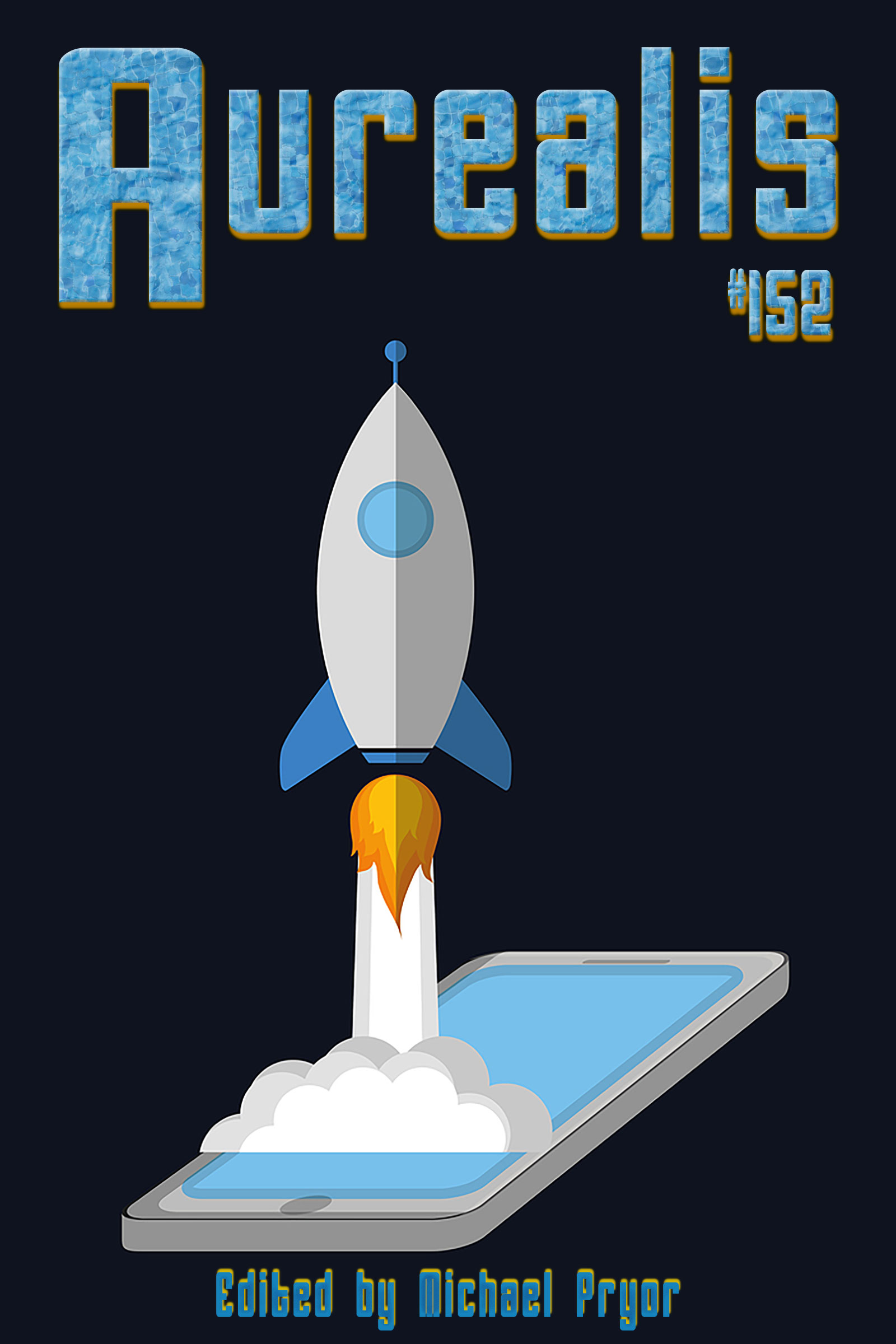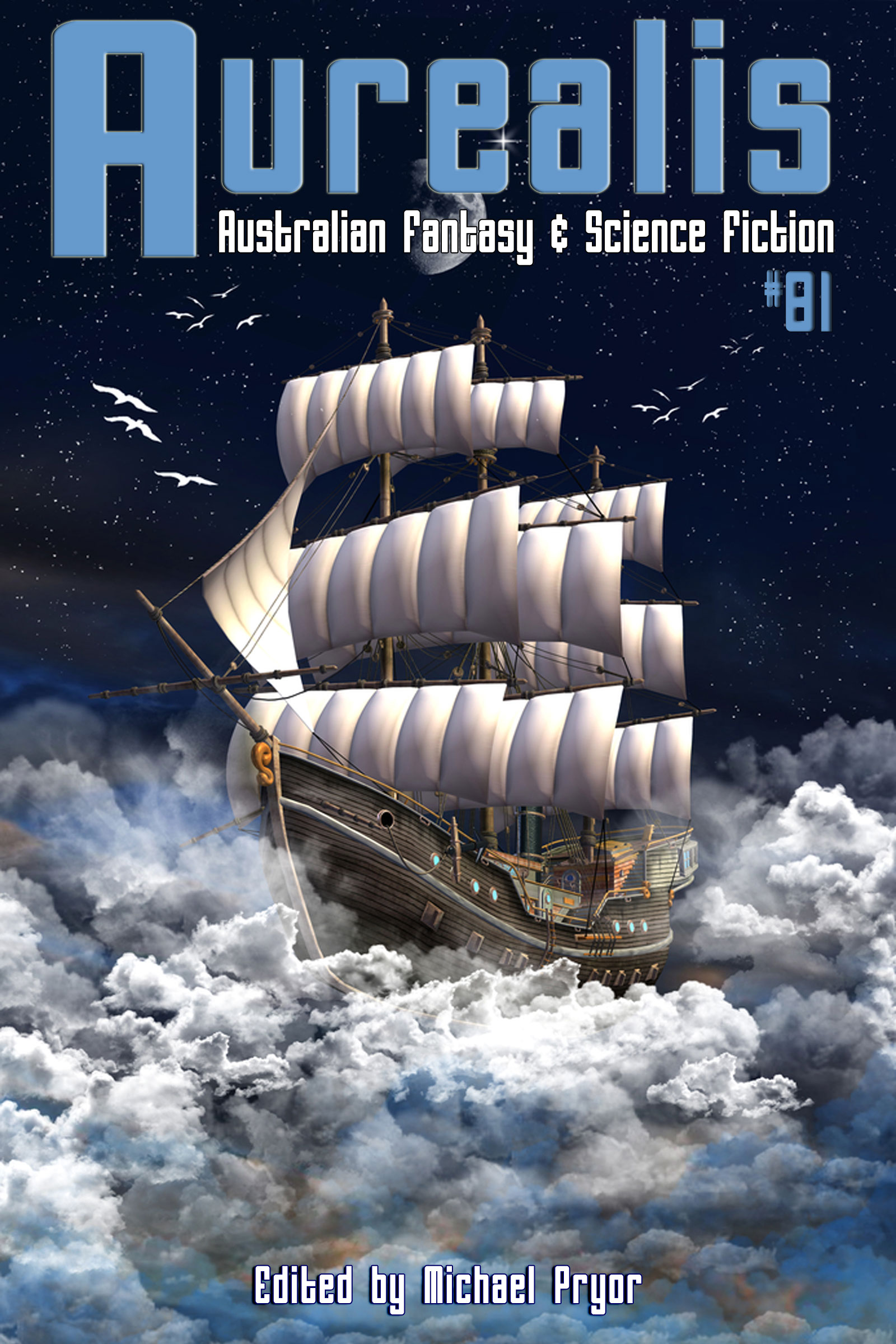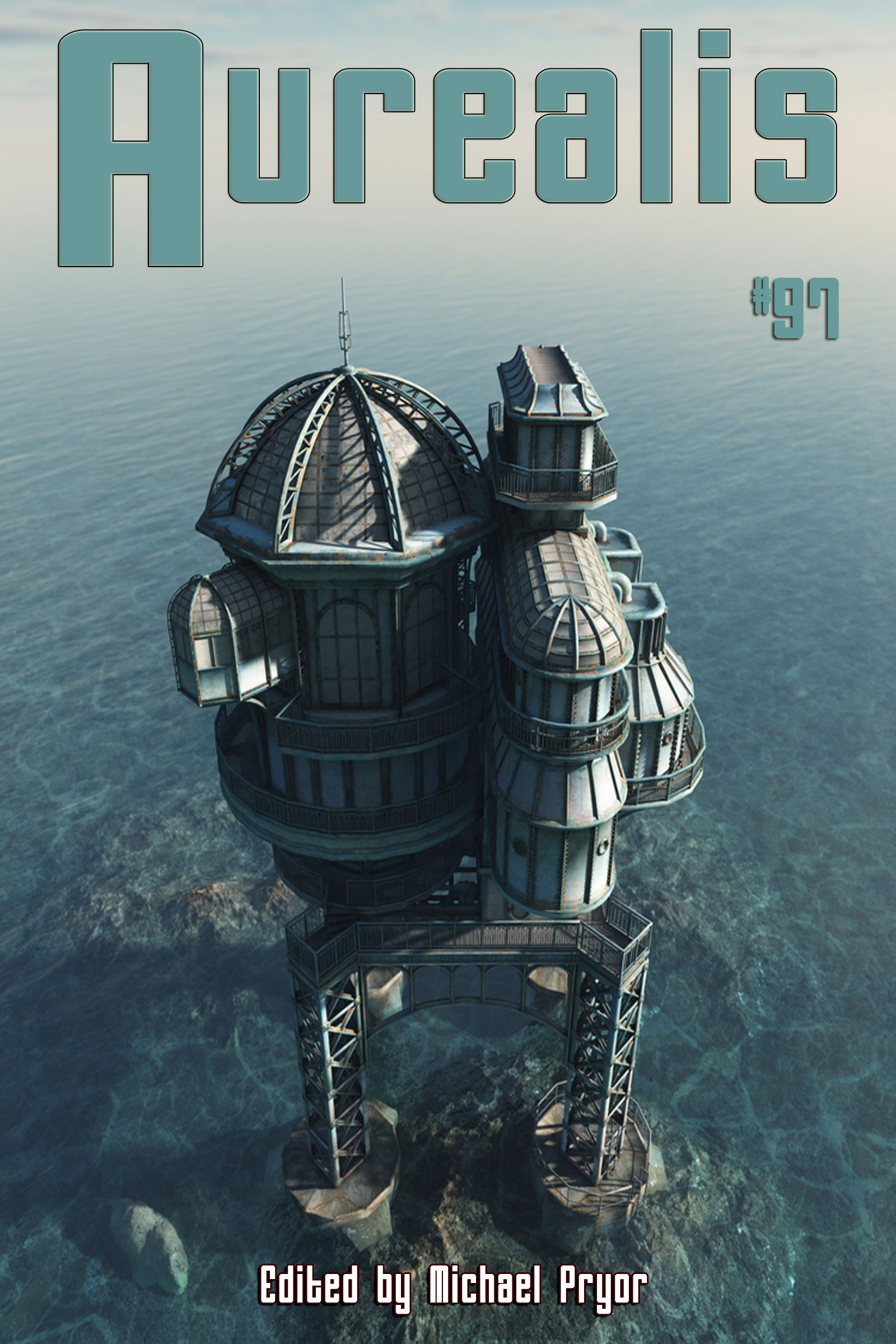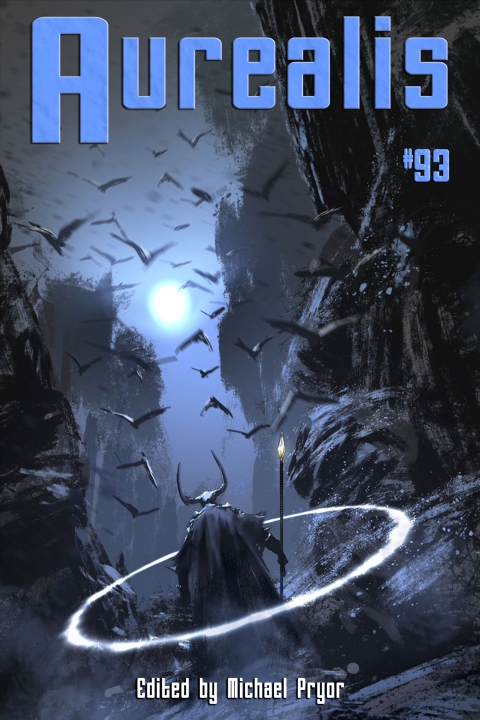Aurealis #152
$3.99
Aurealis #152 features the otherwordly ‘At Dawn’s Speed’ by Dirk Strasser, the elegant ‘Tree Song’ by Avril Mulligan and the absorbing ‘My Spirit Shall Not Always Strive’ by Bryn Dodson. Our non-fiction is by Lynne Lumsden Green, Gillian Polack, Emmet O’Cuana and Henry Farnan. Our Reviews section is incisive and our internal art dazzling. Aurealis: our horizons are vast.
- From the Cloud — Michael Pryor
- At Dawn’s Speed — Dirk Strasser
- Tree Song — Avril Mulligan
- My Spirit Shall Not Always Strive — Bryn Dodson
- Pioneering SF Women Kate Wilhelm—Explorer of Innerspace: Guide to Creativity — Lynne Lumsden Green
- How to Build a World for Gothic Adventure: The Case of Fugitive Anne — Gillian Polack
- The Hounds of the Morrigan—Pat O’Shea’s Vanishing Ireland — Emmet O’Cuana
- A Fantasy Trope for the 2020s — Henry Farnan
Science fiction has a long and proud history of using real, actual science as the inspiration and the foundation for stories. Physics, astronomy, cosmology, biology and psychology have all been important wellsprings for SF narratives, but we at Aurealis feel that other branches of science have been neglected. So we have some suggestions for other areas of science that could be productive for writers. If, in a few years, you see an SF publishing trend coming from these suggestions, remember that you read it here first.
Coniology, the study of dust in the atmosphere. We’re overdue for stories about intrepid coniologists discovering hitherto unknown features of dust and the terror/delight/confusion they could cause to financial markets across the globe.
Dendrochronology, the scientific method of dating tree rings. We’re imagining a SF/crime hybrid, set in the near future, where the counting of tree rings exposes murderers again and again. They should stick to firearms, these murderers, and not antique chair legs, rigged beams in attics and jousting sticks made from ancient oaks.
Campanology, the study and the art of bell ringing. Is this a science? No matter. Soon, bookshop shelves will be groaning with intergalactic empires where communication is only possible through trans-light bell ringing combinations. Count on it.
Sedimentology, a branch of geology that studies sediments. We’re surprised this already hasn’t been big. So much sediment everywhere, it has real possibilities for strange new forms of life we can communicate with/be threatened by, as long as we can get to the bottom of it.
Trichology, the study of hair and scalp. Come on, a hair and scalp based award-winning series writes itself! It’s so obvious we can’t be bothered detailing it here.
Zymology, the study of fermentation. Mmm, a book about the future possibilities of beer, wine and bread, possibly with interplanetary travel as a backdrop? The prospects are mouth-watering.
Get to it!
All the best from the cloud!
Michael Pryor
From At Dawn’s Speed by Dirk Strasser:
My people are never still. Even when we sleep, our bodies sort of twitch and shake. We call ourselves the Run People—because that’s what we do. Run. And run. Until it’s time for one of us to silver. Like now.
From Tree Song by Avril Mulligan:
The forest was vast, and alive, and had claimed the town as a part of itself. The inhabitants of the town did not know that they had been claimed—they saw the physical distance between the trees and themselves, and believed in it. They had no awareness of the tapestry of roots, the intricate network of communication that covered that distance easily to spread below their houses and roads. They did not know that the forest was listening.
From My Spirit Shall Not Always Strive by Bryn Dodson:
My doctor, a tousled-haired woman I have seen for many years, is running through her checklist: height, weight, sleep patterns, iron levels, contraception and (unfortunately) diet. She monitors blood pressure with an old-fashioned pump strapped to my forearm. My temperature is normal, a balmy 97.7 degrees. ‘All very good,’ she says, which makes me breathe a little easier. I’m guilty of the occasional dietary lapse or recreational substance, as she must surely know, but in an age of omniscient medicine I’ve learned the value of a doctor who is willing to look the other way.
From Pioneering SF Women Kate Wilhelm—Explorer of Innerspace: Guide to Creativity by Lynne Lumsden Green:
Kate Wilhelm was one of the New Wave science fiction writers to emerge in the 1960s. New Wave emphasised style, experimentation, and literary merit over scientific accuracy. Wilhelm was considered both a stylish and intelligent writer, who wasn’t afraid to cover controversial topics like the use of day-after abortion drugs, domestic violence, and the exploitation of women by the media. She was—and still is—considered a feminist writer, but she proclaimed frequently that she wrote about the things that were important to her rather than having a specific political agenda.
From How to Build a World for Gothic Adventure: The Case of Fugitive Anne by Gillian Polack:
Rosa Praed’s Fugitive Anne, A Romance of the Unexplored Bush (1902) has particularly interesting worldbuilding. The setting is complex and the detail that brings the novel to life is brought into the novel from a number of quite different approaches. This affects the mood and even the style of the tale. Changes in mood follow changes in how the world appears and the shifts are significant.
From The Hounds of the Morrigan—Pat O’Shea’s Vanishing Ireland by Emmet O’Cuana:
In 2006, journalist Turtle Bunbury and photographer James Fennell published the first book in the Vanishing Ireland series. Collecting interviews and photo portraits of elderly Irish citizens left behind by sweeping economically-driven cultural changes in the small island nation, the intent behind the book was to preserve their subjects’ memory of what had been before.
From A Fantasy Trope for the 2020s by Henry Farnan:
The arcane can be an art, spells can be a commodity, and magic can mean history. In the pages of fantasy books, there exist worlds with magic that is volatile and infernal, only being mastered after hard study and a honing of the mind. Inked into other pages are worlds where magic permeates every corner of existence, where recklessly casting a spell means tugging on the threads that bind the very universe together.





